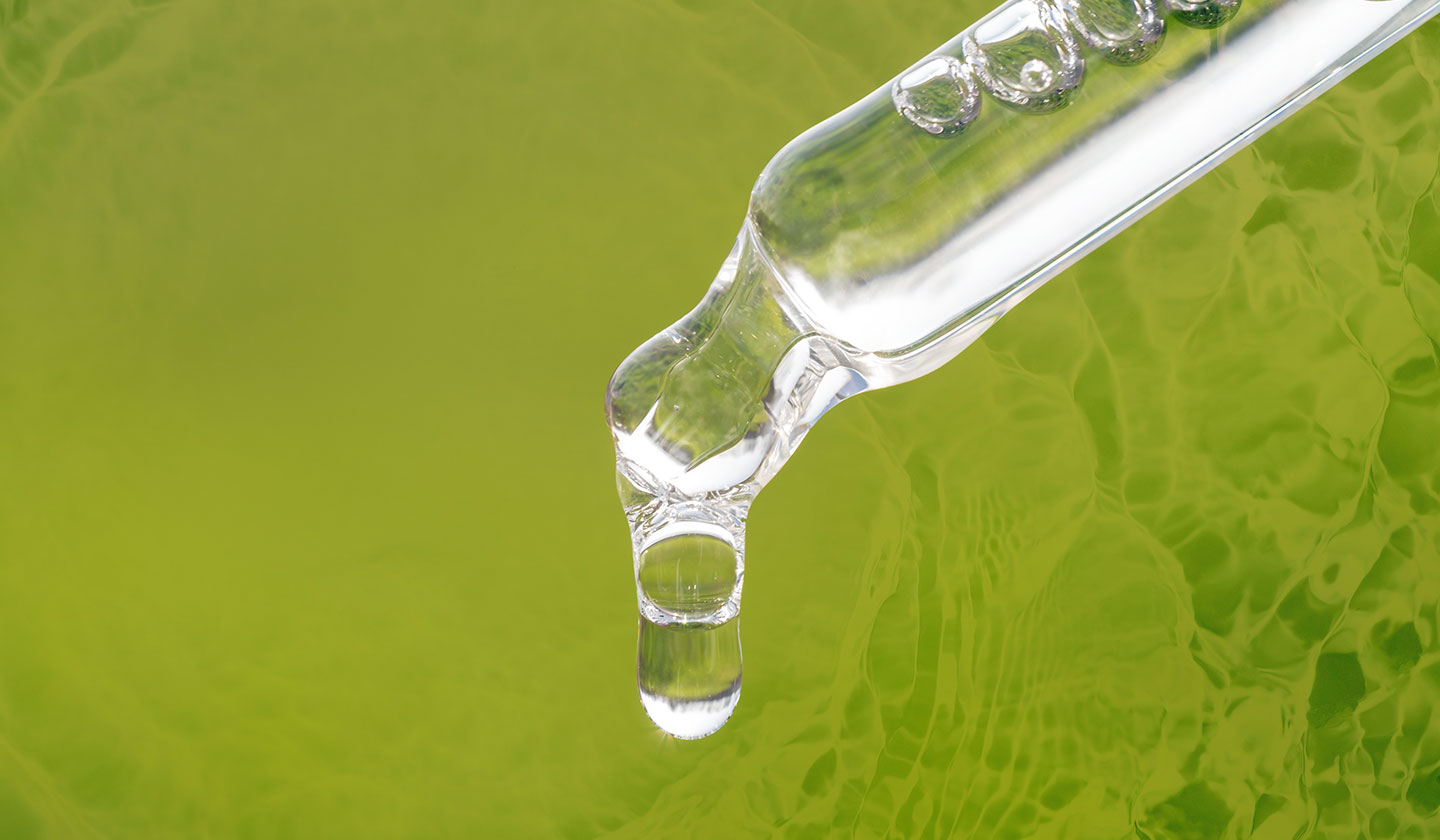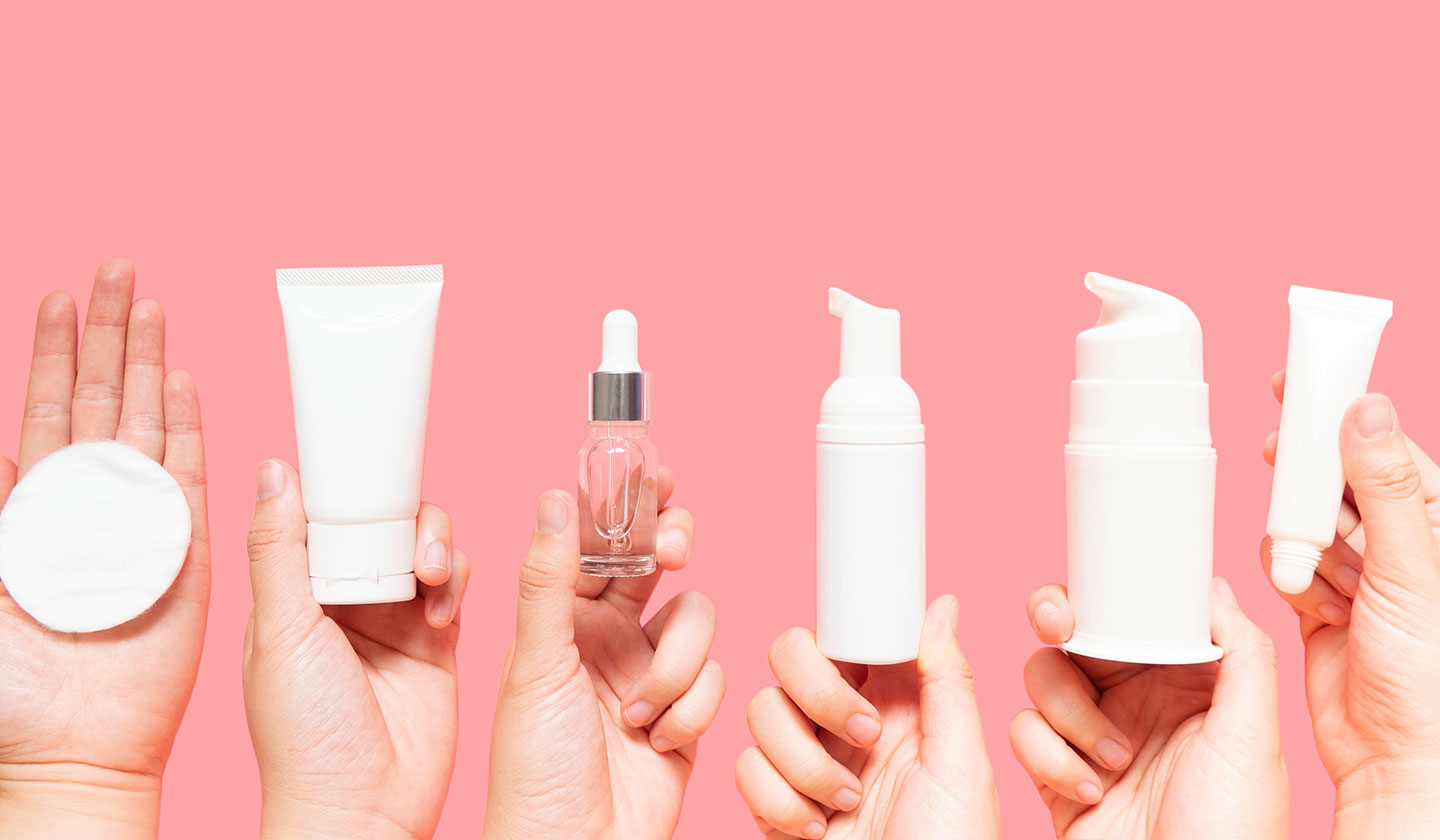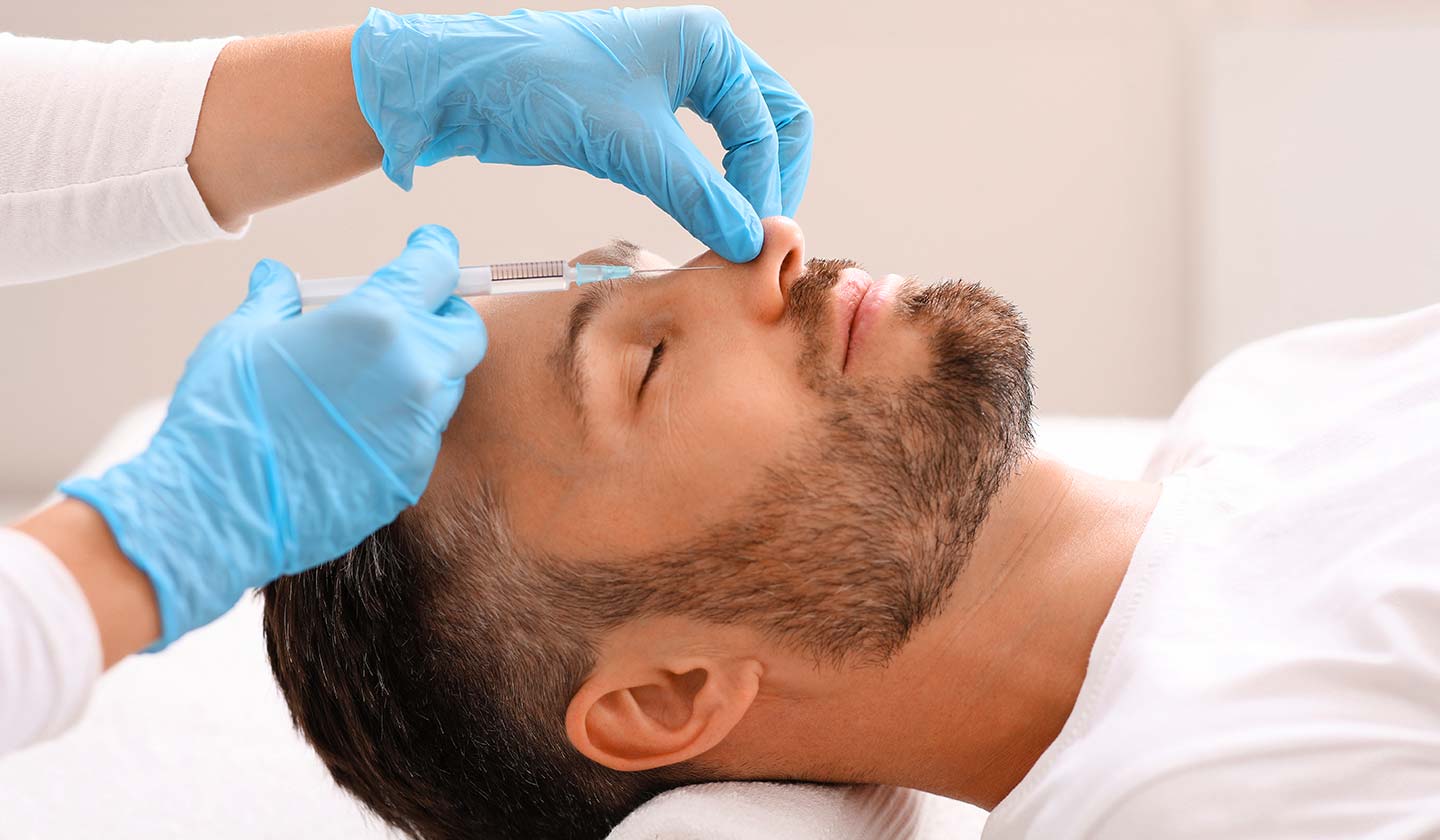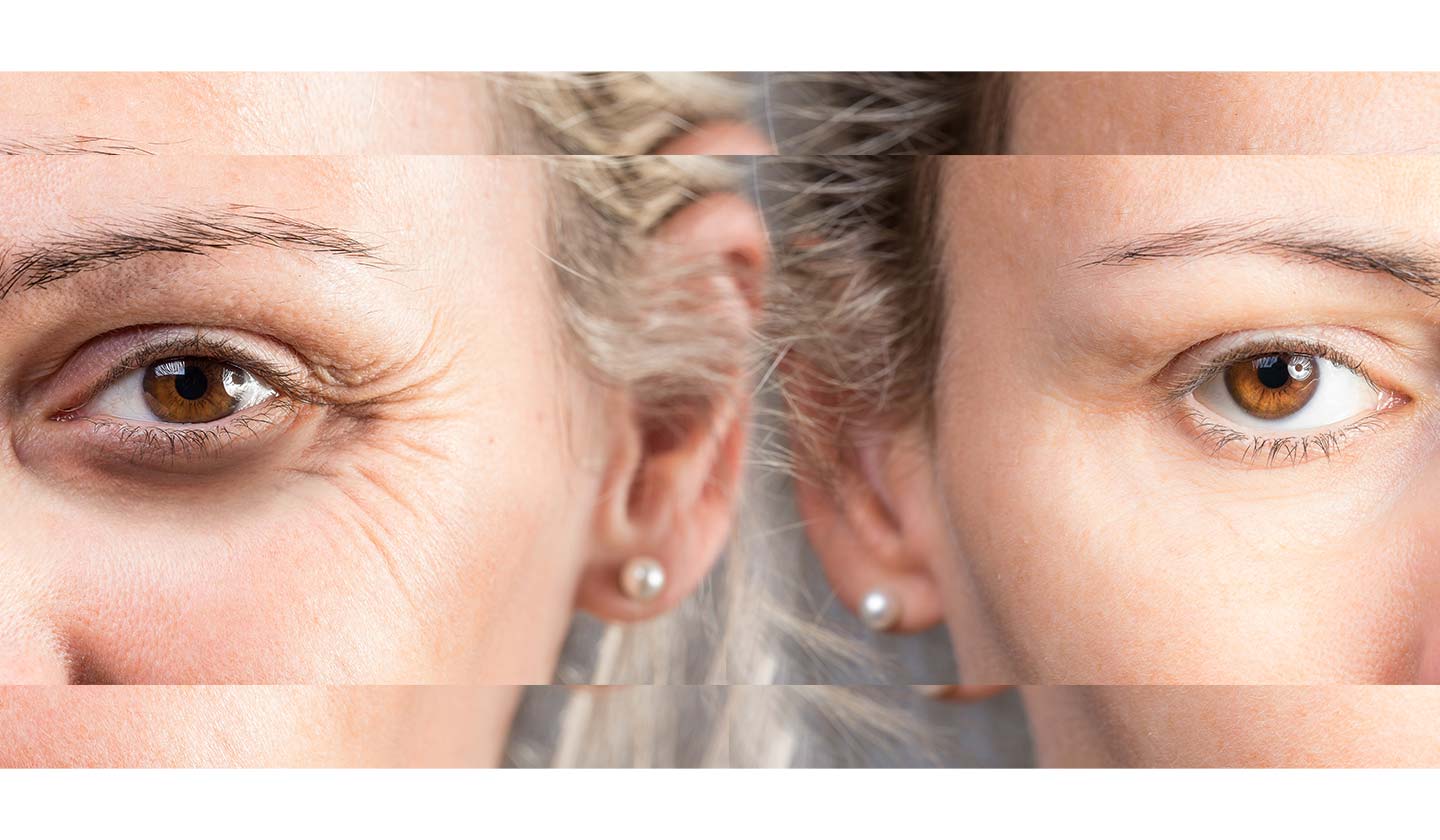Dermatology
What is hyaluronic acid, anyway?

Hyaluronic acid is a widely used ingredient in cosmetic products when the goal is to moisturize our skin. Low and high molecular weight, this glucosaminoglycan can be one of our skin's best friends.
Being a powerful moisturizer and a great ally in the fight against premature skin aging, hyaluronic acid is a large sugar molecule, which is naturally produced by our body. With humectant properties, it is capable of retaining up to 1000 times its weight in water. In addition, it is present in greater quantities in our skin, where it fills the space between cells, keeping it hydrated and elastic.
What is its function?
- Moisturizing potential;
- Prevents water loss;
- Restores elasticity and firmness to the skin;
- Fills in naturally signs and expression lines;
- It can be used as an in-office treatment for certain types of dark circles under the eyes.

How can we include this molecule in our skincare routine?
From the age of 25, we stop producing hyaluronic acid naturally. It therefore makes sense to look for ways of obtaining it.
How can we do this? Through the topical application of cosmetic products, in the form of creams, serums, lotions, gels and, sometimes, associated with other active ingredients, such as vitamin C.
Different weights will have different effects on the skin?
Yes. High molecular weight hyaluronic acid will stay on the surface of the skin, absorbing more water from the environment and retaining it, having a moisturising effect on our skin. On the other hand, low molecular weight hyaluronic acid is able to penetrate deeper into our skin and stimulate the production of natural hyaluronic acid.
Cross-linked or non-cross-linked: what are the differences?
Depending on the type, hyaluronic acid can have different actions. Reticulated is the one used for aesthetic treatments - injectables - for filling and volumising, for example, taking longer to be absorbed and its effects last longer.
The non reticulated is what we find in cosmetic products. In this case, the molecules which make up the acid are not united, but circulate freely, and it is an interesting way to apply it to the skin.

Injectable hyaluronic acid: when to use?
It is a procedure that should only be performed by specialised health professionals, such as a dermatologist.
Due to its moisturizing potential, it is able to act in filling signs and fine lines, also giving more volume to our skin. The areas which are normally filled are dark circles under the eyes, wrinkles above the upper lip, deep scars, forehead area and in some cases cellulite.
Everyone can use hyaluronic acid?
Yes. Hyaluronic acid is an ingredient that is well tolerated by all skin types, from dry to oily, and even the most sensitive skin.
One of the biggest questions that has arisen is whether we can use this ingredient during the day. Although it is an acid, it is not photosensitising, meaning that it does not sensitise our skin or make it prone to sunburn when we are exposed to the sun. So there's no reason why we shouldn't use cosmetic products with hyaluronic acid in our morning skin care routine.

Myths and truths about hyaluronic acid
1) Hyaluronic acid and botulinum toxin are the same thing.
MYTH: The products and procedures are completely different. Botulinum toxin is used for the prevention and treatment of static or dynamic wrinkles. It is injected into the muscle to relax it and reduce its action in the formation of wrinkles and expression lines. Hyaluronic acid, on the other hand, is used to fill furrows and/or places where volume is lacking in the skin and not in the muscle.
2) Filling with injectable hyaluronic acid and with botulinum toxin can be done on the same day.
TRUTH. The combination of the two procedures is beneficial and produces a better result.
3) The effect of injectable hyaluronic acid is permanent.
MYTH: The effect time depends on the application site, but varies between nine months and one and a half years. In areas with a lot of muscle contraction, applications should be more frequent.

Now that you have all your doubts cleared up, there is no longer any reason to be afraid of using cosmetic products with hyaluronic acid, as long as they are in products adapted to the type and condition of your skin.

Dr. Ricardo Rodrigues
(Pharmaceutical)
Postgraduate in Dermatocosmetology. Postgraduate in Advanced Cosmetology
Blog creator opinguimsemasas
Também lhe poderá interessar
Dermatology






